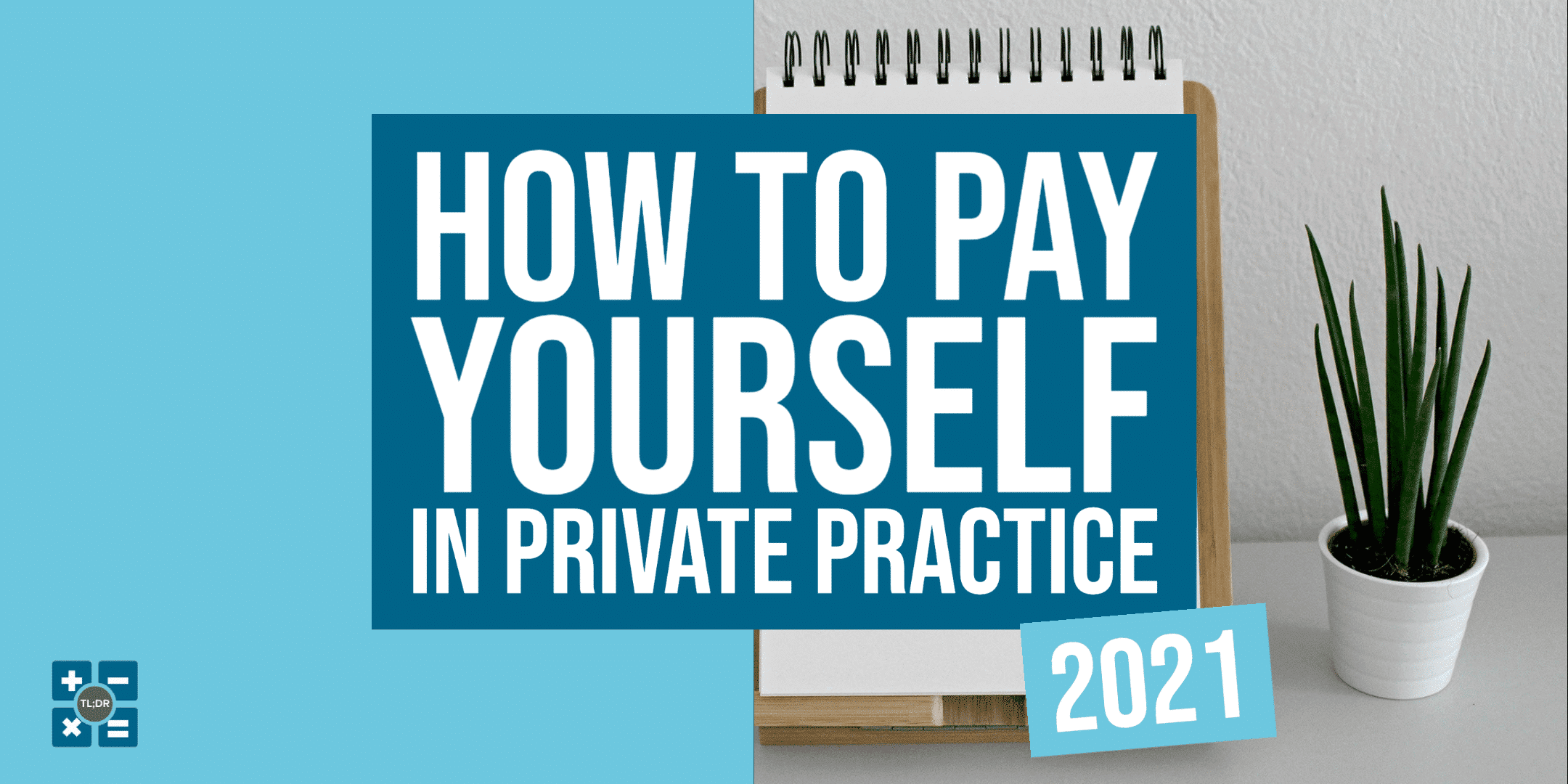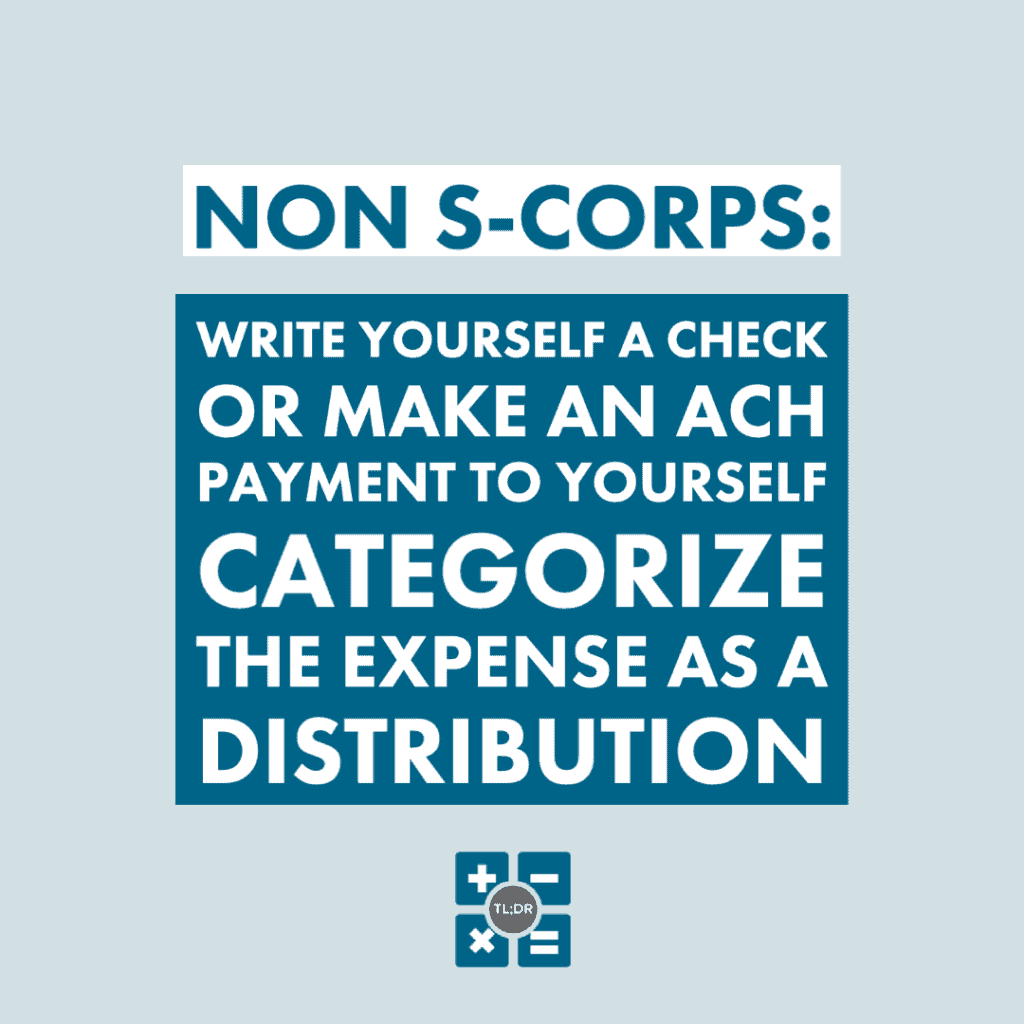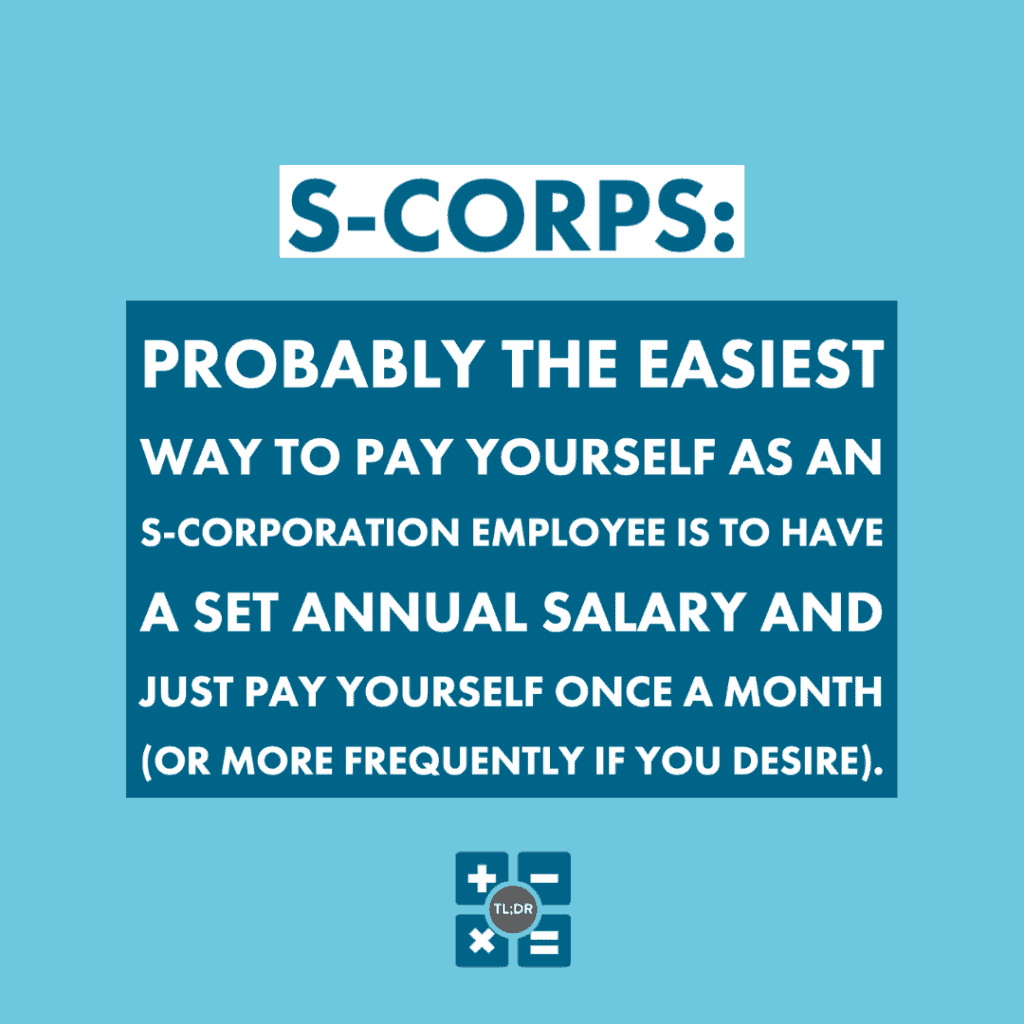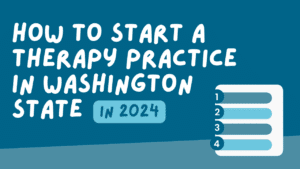Before you got into Private Practice, you might have smiled to yourself and thought, “Now that I’m my own boss, I can determine my own pay!” But if you’ve been running a business for a while, you’ve probably realized that it’s not that simple.
Sure, there’s nobody to veto your choice of dollar amount, but you have to keep the needs of your business in mind. As with any other investment, it’s all about balancing your current needs against the return your business can provide from the money that you put into it.
It can be difficult to determine that “salary sweet spot” between living on ramen noodles and using $100 bills to light your fireplace. Even after you’ve decided on a salary, you’re left to figure out just how to pay yourself. Fortunately, we have you covered!
How Much Should I Pay Myself?
Isn’t it great when you ask an accountant or a lawyer a question and they say, “It depends…” with a wry smile? Well, it almost always does depend. Similarly, deciding how much to pay yourself depends on the answers to:
- How much work do you do, and how much revenue do you make? Naturally, revenue is a great starting point when determining compensation.
-
- How much work do you want to do? Be sure to adjust your salary according to your goals. Sometimes your own mental health prevails over putting in extra hours, and there’s nothing wrong with that.
- How much work can you do? If demand is high enough and you can set your hours, great! But if you’re not confident about the future of your business, it’s time to re-evaluate…basically everything.
- What are your obligatory expenses?
- If you have employees, we don’t have to tell you that you need to pay them. Cutting employees’ hours is generally a bad idea (unless it’s a last resort) because it can permanently impact morale.
- If you hire contractors, you have the option to draw down your workforce when needed…if you’re willing to step up the amount of work you do yourself or delegate to your staff.
- Some other sizable expenses for a service business that are relatively inflexible are rent, loan interest, insurance, and, of course, tax savings.
- Then there’s marketing expenses. While it isn’t technically “required,” every marketing dollar you cut now could cost you big in lost revenues in the future.
The above are the kinds of “feeling it out” questions you can expect us to ask if you contact us for help with your business. Let’s talk about hard numbers now.
The Numbers
While deciding on your salary does indeed depend on a lot, we generally use the below chart to determine a “ballpark number” for compensation for service businesses.
| Income Between | Recommended Compensation |
| $0 to $250,000 | 50 to 65% |
| $250,000 to $500,000 | 35% |
| $500,000 & Up | We should talk |
After looking at this chart, are you asking yourself how you could possibly afford to pay yourself so much? If you are, there’s a good chance that your business is overspending. Look over your expenses and ask yourself if each expense is either required or if it brings in clients. If the answer is “no” to both, you might be better off cutting it.
Contact us if you need help combing through your expenses in order to find money to reach your goals.
How to Pay Yourself (For Businesses That Are Not S-Corporations)
Is your business a Sole Proprietorship, Partnership, PLLC, or LLC, and you have not elected to be treated as an S-Corporation? In order to pay yourself from your business’s coffers, here’s what to do:
- Write yourself a check or make an ACH payment to yourself
- Categorize the expense as a Distribution
That’s it — that’s the whole process! Not bad, right?
Important note: If you have any outstanding business bank loans, your bank may have a covenant (set of rules) that you are required to follow in order to be in “good standing” per the loan. Covenants often have a limit on how much you’re able to take as a distribution. Make sure you stay within that line, or else the bank may punish you with fees, a higher interest rate, or even the “nuclear option:” making the whole loan due immediately.
How to Pay Yourself (For S-Corporations)
S-Corporations are business entities in which the owner is also an employee. If you don’t know whether you are an S-Corporation, you probably aren’t one: it’s an opt-in process. If you have a Form 2553 on file, you are probably an S-Corporation.
S-Corporations provide many tax benefits for small business owners, but these benefits come at a cost of increased complexity. Every S-Corp has at least one employee (the business owner), so every S-corp is required to run payroll. Running payroll is complex and generally requires you to pay for payroll software.
Probably the easiest way to pay yourself as an S-Corporation employee is to have a set annual salary and just pay yourself once a month (or more frequently if you desire).
Important Note: The salary that you set for yourself as an S-Corporation owner is subject to IRS scrutiny. Regardless of how you feel about this personally, we strongly recommend that you go through a formal process in order to determine a “reasonable salary” for yourself. We have done this many times and can walk you through the process. Perhaps more importantly, we can document the process so that said documentation is available to the IRS upon request. It’s possible that you may never be audited, but if you are you’ll be glad to have that documentation.
As one final note, it is within your power to take a distribution in addition to your S-Corporation salary. We want to emphasize that if you do this, please take caution. Don’t drain so much money out of your company that it impedes regular business operations.
TL;DR: Before determining your salary, think about your revenues and expenses. Ask yourself if each expense is required and whether the amount is fixed or variable. If your business earns less than $500,000 annually, as a benchmark you should be able to pay yourself about a third to one-half of your revenue. The method by which you pay yourself depends on whether your business is an S-Corporation. If you are not an S-Corp, just write yourself a check! If you are an S-Corp, you must make a reasonable salary determination, and we highly recommend you document the process. Or just have us do it for you!








